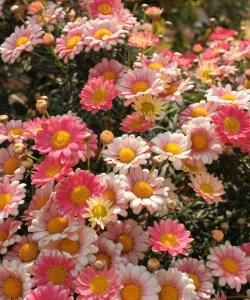The Time Is Now: Writing Prompts and Exercises

Write a poem that uses the language of flowers to share a secret, a scene where a young person expresses their thoughts about a parental figure, or an essay based on the logic of your own dreams.
Jump to navigation Skip to content

Write a poem that uses the language of flowers to share a secret, a scene where a young person expresses their thoughts about a parental figure, or an essay based on the logic of your own dreams.

An introduction to three new anthologies, including What My Father and I Don’t Talk About: Sixteen Writers Break the Silence and Sing the Truth: The Kweli Journal Short Story Collection.
What signals to you that spring has finally arrived? While there are signs of transformation throughout the year, the signs of spring often feel particularly special following on the heels of winter as many look forward to the tiniest indications of vernal revitalization. Buzzing bees, daffodils and tulips, pollen that makes you sneeze, the end of clanging heater pipes, wearing shorts, outdoor picnics, and opening windows—there are many associations with the freshness of the season. This week write a series of short poems that focus on the small, perhaps idiosyncratic changes that signify to you, personally, that a new season is upon us.
In this event hosted by the Helen Zell Writers’ Program at the University of Michigan, Jane Wong reads “To Love a Mosquito,” a chapter from her memoir, Meet Me Tonight in Atlantic City (Tin House, 2023), and pieces of her mother’s diary, followed by a discussion about her approaches to poetry versus creative nonfiction.
“I knew I was a god / when you could not / agree on my name // & still, none you spoke / could force me to listen / closer.” In this video, Meg Day reads “Portrait of My Gender as [Inaudible]” as part of Dear Poet, the Academy of American Poets’ educational project for National Poetry Month.
In Sean Baker’s film Anora, which won best picture at this year’s Academy Awards, the title character spends the majority of her time zigzagging around New York City with various characters and in one particularly indelible shot, she strides past the iconic Cyclone roller coaster at a deserted Coney Island boardwalk on a gray winter afternoon. This week write a poem that revolves around an iconic location with a depiction that is unconventional or atypical in juxtaposition. You might consider how this locale is usually thought of in the popular imagination, how it was designed to function, or how it looks in different seasons. Play around with diction and rhythm to amp up a sense of tension and upend conventional expectations of your subject.

“I’m a firm believer these days in discomfort on the page, whether it’s sonic, tonal, metaphorical, or imagistic.” —Keetje Kuipers, author of Lonely Women Make Good Lovers

Jehanne Dubrow offers advice to writers wondering whether they are ready to process traumatic experience on the page.